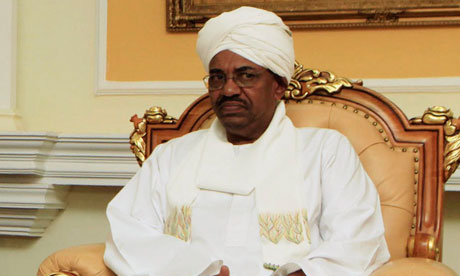By: Jessica Ties
Impunity Watch, Asia
BEIJING, China – China has invited Sudanese President Omar al- Bashir to visit the country June 27 through June 30. Following his election to presidential office in 1993, Omar al-Bashir and the Government of Sudan have committed genocide in Darfur which has resulted in over two million displaced persons, another 275,000 refugees and approximately 400,000 deaths.

Al-Bashir’s alleged contribution and orchestration of human rights violations in Darfur have led to two arrest warrants being issued against him in 2009 and 2010 by the International Criminal Court. Al-Bashir is facing a total of ten counts comprised of five counts of crimes against humanity, two counts of war crimes and three counts of genocide.
Al-Bashir is visiting China on the invitation of President Hu Jintao who is highly vested in Sudanese oil production. Two-thirds of the oil produced in Sudan goes to China making Sudan China’s third largest African trading partner and placing China in a position to encourage Sudan’s future success as a nation. Chinese spokesman, Hong Lei, stated that the meeting is intended to conduct talks in efforts to promote peace and stability in Sudan.
U.S. State Department spokesman Victoria Nuland commented on al-Bashir’s visit to China by stating that “China makes its own national decisions” but that they hope China will use the leaders visit as an opportunity to “make strong points to him about the future of his country and the importance of peace.”
Al-Bashir’s invitation to China comes a month before South Sudan is set to split from North Sudan and coincides with a report by the United Nations announcing that the violence on the border of north and south Sudan is currently increasing.
Just as Amnesty International had strongly opposed al-Bashir’s visit to Malaysia, which was subsequently cancelled by al-Bashir, the human rights organization also strongly opposes the leader’s visit to China.
Although China is not a party to the Rome Statute of the International Criminal Court and therefore not required to arrest al-Bashir, it is a permanent member of the UN Security Council which referred the situation in Darfur to the ICC prosecutor resulting in a resolution encouraging all states to cooperate with the ICC.
Deputy Asia Pacific Director at Amnesty International, Catherine Baber, has stated that China should not allow al-Bashir to visit the country or should arrest him upon entry because if “China welcomes Omar Al-Bashir it will become a safe haven for alleged perpetrators of genocide.”
For more information, please see:
New York Times – Is Omar Hassan al-Bashir Up to Genocide Again? – 18 June 2011
Business week – China Invites Sudan Leader Accused of War Crimes – 17 June 2011
China Daily – Sudan Leader to Pay Visit – 17 June 2011
Amnesty international – China Must Arrest Sudanese President – 16 June 2011
Forbes – China Invites Sudan Leader Accused of War Crimes – 16 June 2011
International Criminal Court – Darfur, Sudan – 12 July 2010


